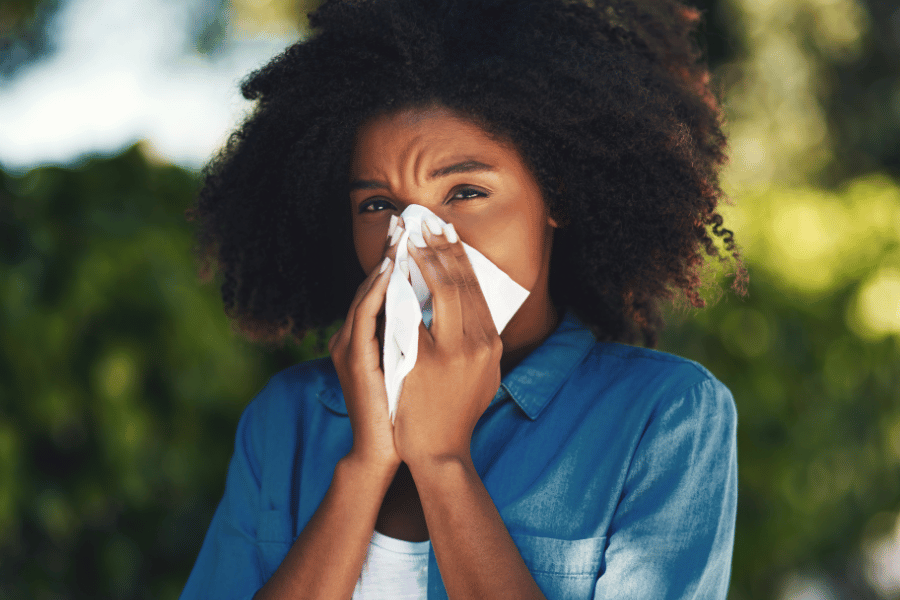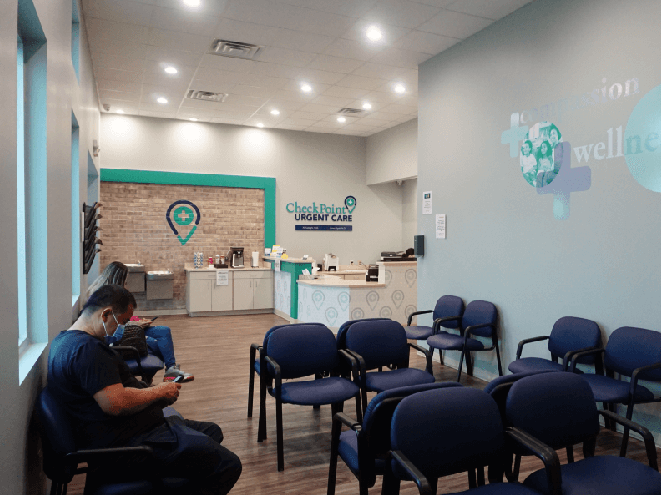Seasonal allergies can be a real nuisance, causing discomfort and interfering with your daily life. You may experience symptoms such as sneezing, a runny or stuffy nose, itchy and watery eyes, and an itchy throat. These symptoms can be caused by a variety of allergens, including pollen, mold, and dust. CheckPoint Urgent Care can provide treatment for seasonal allergies and get you feeling better in no time.
Seasonal Allergies
Allergies occur when your immune system overreacts to a substance that is normally harmless. When you come into contact with an allergen, your body produces antibodies that trigger the release of histamine and other chemicals, leading to the symptoms of an allergic reaction. Seasonal allergies are particularly common in the spring and fall when plants release pollen and mold spores into the air.
Fortunately, there are steps you can take to manage your seasonal allergies and reduce your symptoms. These may include avoiding allergens as much as possible, using over-the-counter or prescription medications, and undergoing allergen immunotherapy. By taking these measures, you can minimize the impact of seasonal allergies on your daily life and enjoy the changing seasons without discomfort.
Understanding Seasonal Allergies
If you’re suffering from sneezing, runny nose, watery eyes, and other allergy symptoms, you may be wondering whether you have a cold or seasonal allergies. Understanding the difference between the two can help you manage your symptoms and find relief.
Colds Vs. Seasonal Allergies
The common cold and allergies share many of the same symptoms, but they are caused by different things. A cold is a viral infection that can be spread from person to person, while seasonal allergies are caused by an overreaction of the immune system to allergens such as pollen, mold, and dust.
One way to tell the difference between a cold and seasonal allergies is the duration of symptoms. A cold usually lasts about a week, while allergies can last for several weeks or months. Additionally, a cold may be accompanied by a fever, body aches, and fatigue, which are not typically associated with allergies.
Another way to differentiate between the two is by looking at the color of your nasal discharge. A cold typically produces yellow or green mucus, while seasonal allergies produce clear, thin mucus.
Managing Seasonal Allergies
If you’re experiencing these allergies, there are several things you can do to manage your symptoms:
-
- Avoid allergens: Try to stay indoors during peak pollen times, keep windows closed, and use air conditioning with a HEPA filter to reduce exposure to allergens.
- Take over-the-counter medications: Antihistamines, decongestants, and nasal corticosteroids can help relieve symptoms such as sneezing, runny nose, and congestion.
- Consider allergen immunotherapy: If your symptoms are severe and not well-controlled with medications, allergen immunotherapy may be an option. This involves receiving regular injections of small amounts of allergens to desensitize your immune system over time.
When To Visit CheckPoint Urgent Care
Seasonal allergies can be frustrating, but sometimes they can lead to serious health complications. It’s important to know when to seek urgent care for your allergies. Here are some signs that you should seek medical attention:
-
- Severe symptoms: Severe symptoms include difficulty breathing due to increased mucus production, wheezing, chest tightness, and minor swelling of the face, lips, or tongue. These symptoms are not anaphylaxis or life-threatening.
- Eye problems: Allergies can cause eye problems, such as conjunctivitis (pink eye) and swelling of the eyelids.
- Ear problems: Allergies can also cause ear problems, such as ear infections and fluid buildup in the middle ear.
If you or someone else is experiencing anaphylaxis, go to the nearest emergency room. Anaphylaxis is a severe allergic reaction that can be life-threatening. Symptoms include difficulty breathing, swelling of the face or throat, rapid heartbeat, and low blood pressure.
CheckPoint Urgent Care is equipped to diagnose and treat a variety of conditions, including allergies. We can provide medications such as antihistamines or epinephrine injections to reduce the symptoms of an allergic reaction. Visit one of our many locations for all your urgent care needs.








